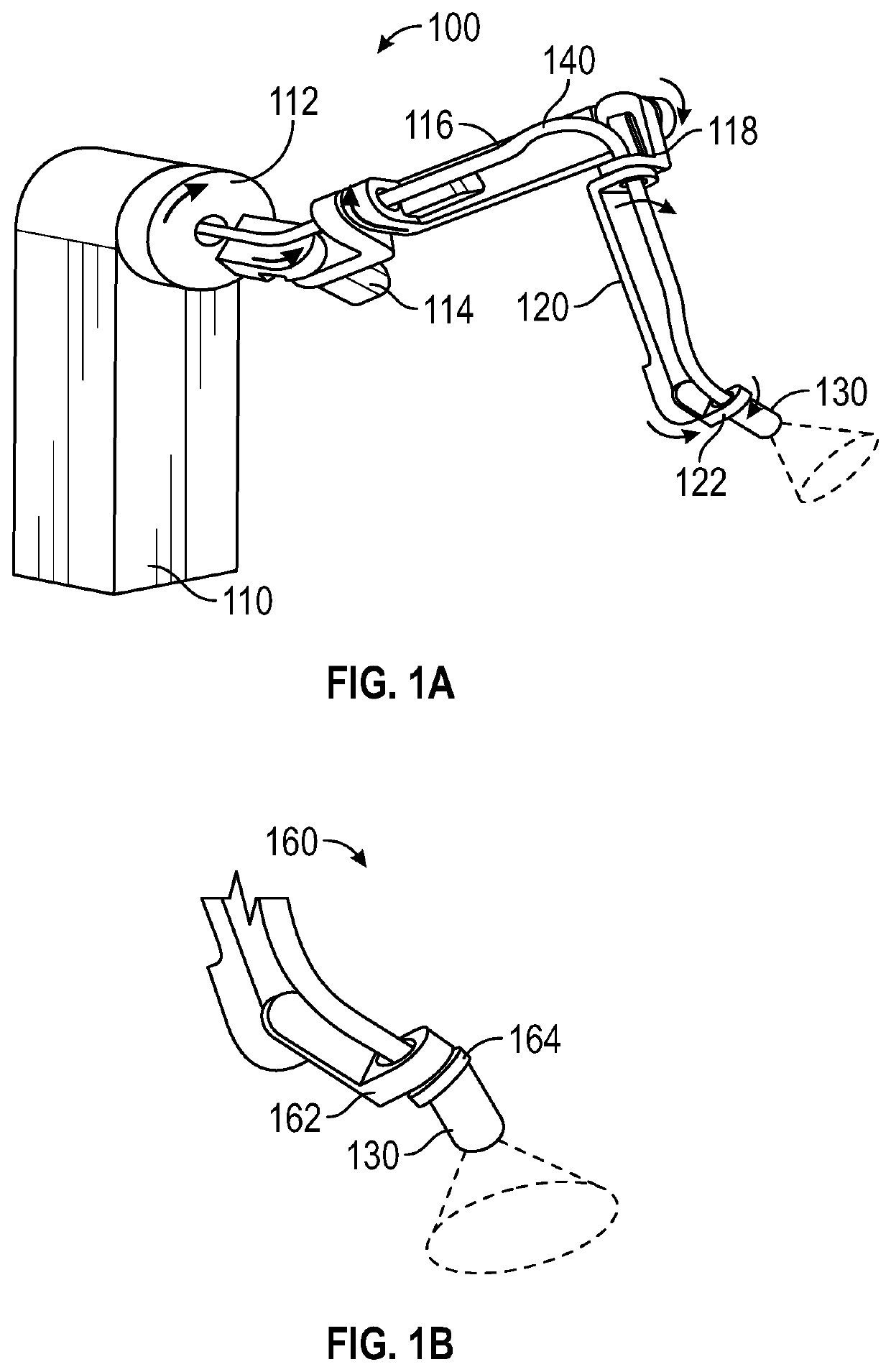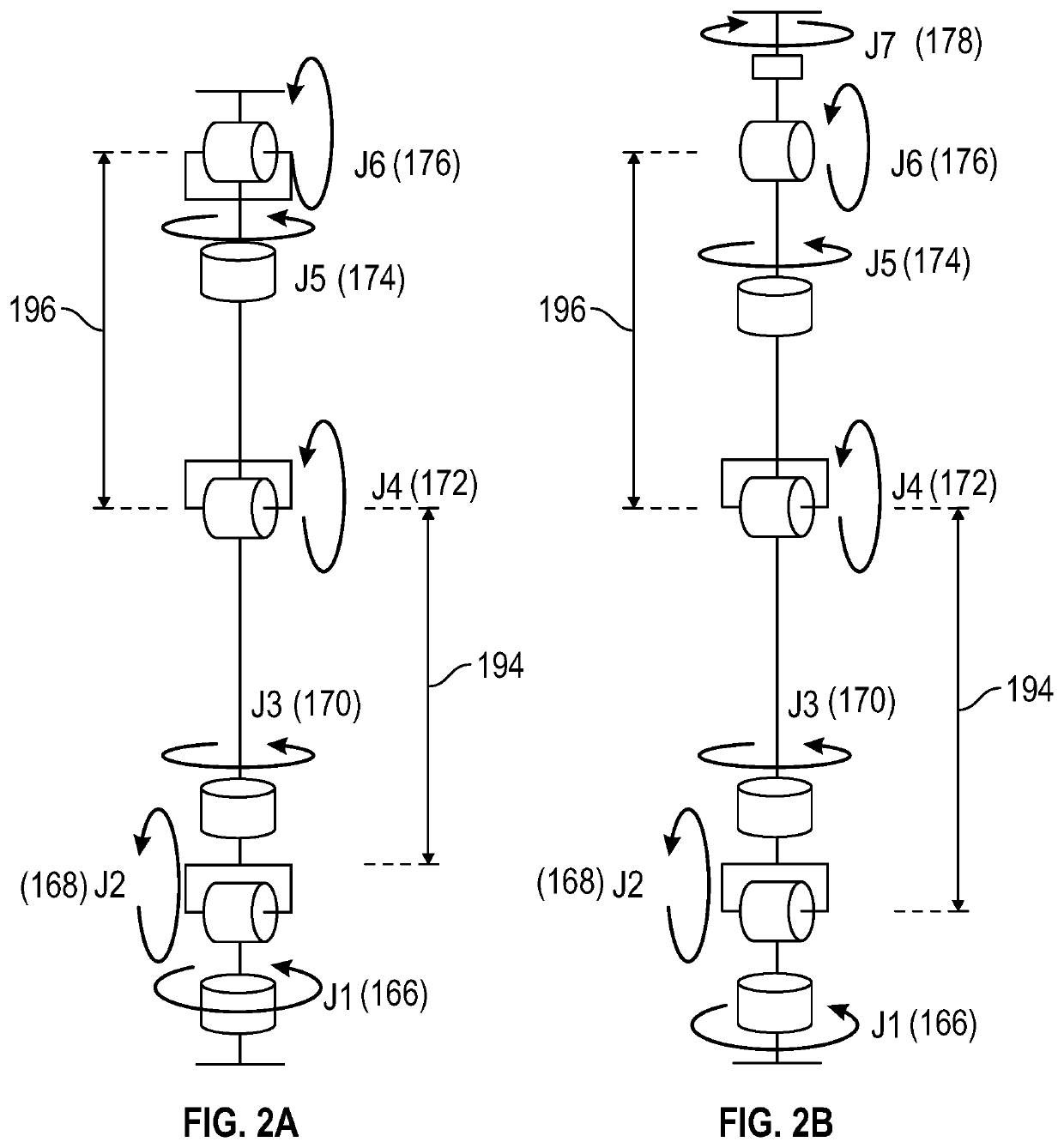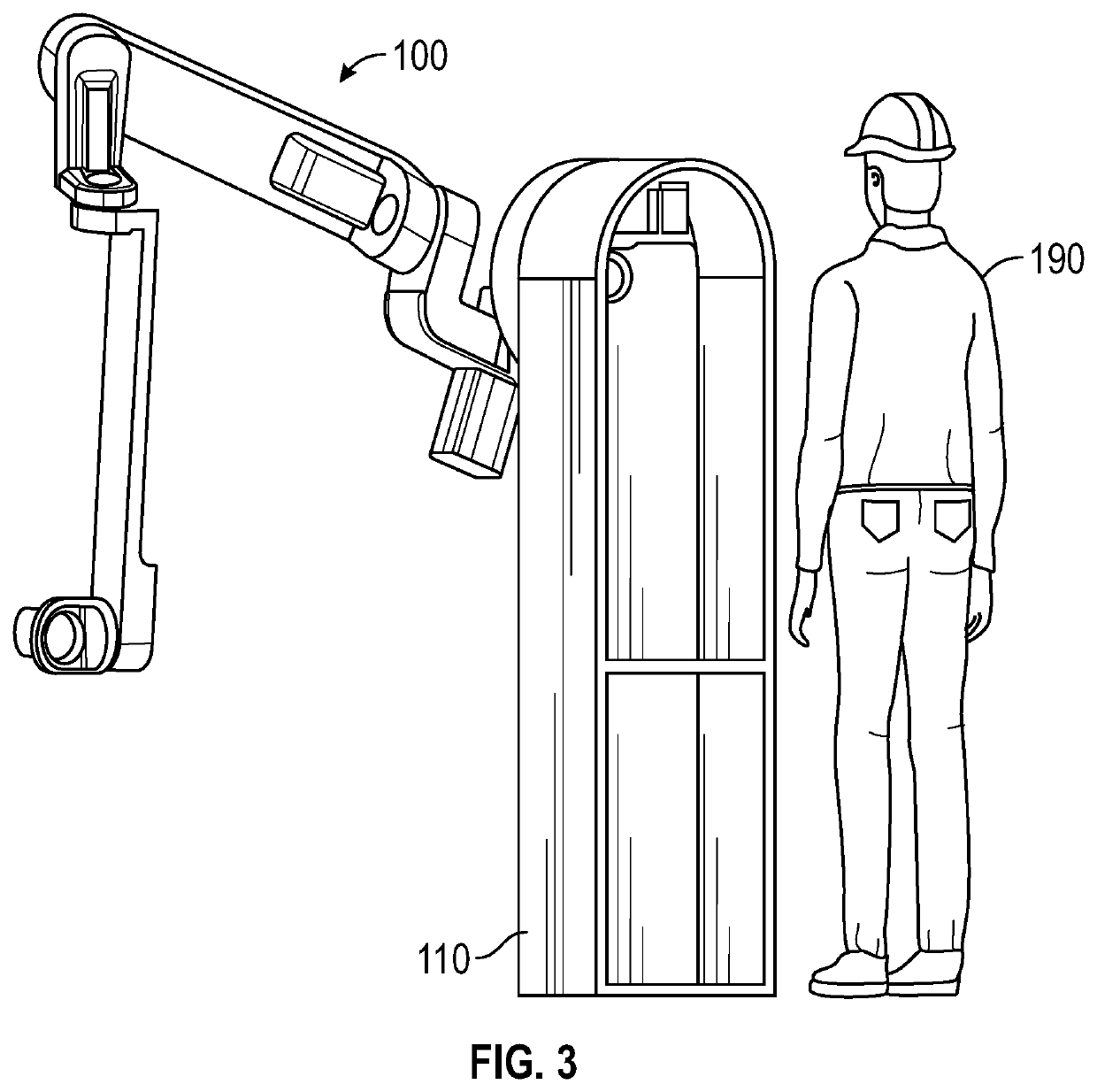Robotic apparatus for a compact painting booth
a compact, painting booth technology, applied in the direction of manipulators, spray booths, movable spraying apparatus, etc., can solve the problems of increasing the size and weight of the robot arms, reducing the flexibility of the near reach, and reducing the efficiency of the painter. , to achieve the effect of minimizing paint waste and wait time, improving kinematics, and improving flexibility
- Summary
- Abstract
- Description
- Claims
- Application Information
AI Technical Summary
Benefits of technology
Problems solved by technology
Method used
Image
Examples
Embodiment Construction
[0029]The following discussion of the embodiments of the disclosure directed to a Next Generation Painting Robot is merely exemplary in nature, and is in no way intended to limit the disclosed devices or their applications or uses. For example, the painting robot is described in the context of painting vehicles on a conveyor line, but the robot is anticipated to find applications painting or processing other types of objects. In respect of the methods disclosed, the steps presented are exemplary in nature, and thus, steps may be added, removed or reordered without departing from the spirit and scope of the invention.
[0030]In order to address the shortcomings of the existing painting robots discussed above, an all-new robot has been designed with features including: improved painting efficiency; reduced installed cost per arm; reduced spray booth down time due to robot service and cleaning; increased robot uptime / availability; reduced color change waste; different inner and outer arm...
PUM
 Login to View More
Login to View More Abstract
Description
Claims
Application Information
 Login to View More
Login to View More - R&D
- Intellectual Property
- Life Sciences
- Materials
- Tech Scout
- Unparalleled Data Quality
- Higher Quality Content
- 60% Fewer Hallucinations
Browse by: Latest US Patents, China's latest patents, Technical Efficacy Thesaurus, Application Domain, Technology Topic, Popular Technical Reports.
© 2025 PatSnap. All rights reserved.Legal|Privacy policy|Modern Slavery Act Transparency Statement|Sitemap|About US| Contact US: help@patsnap.com



